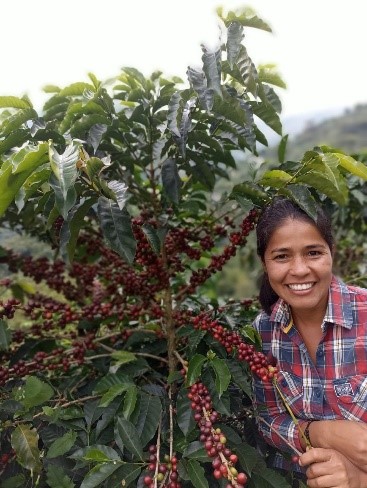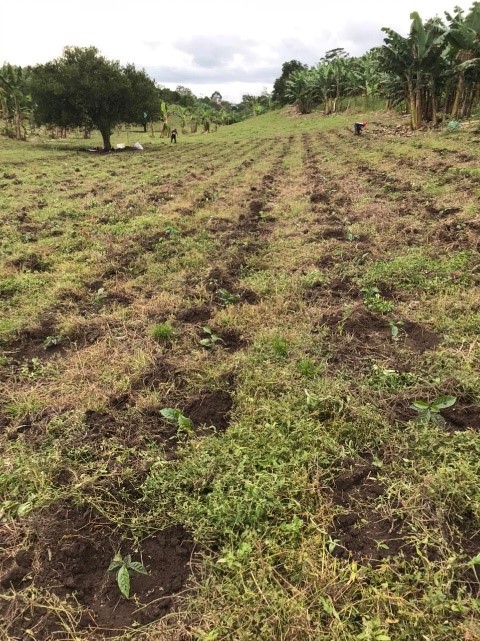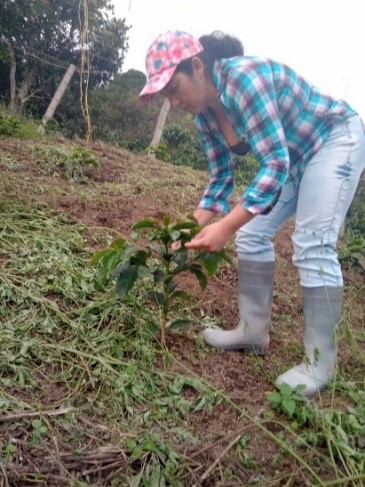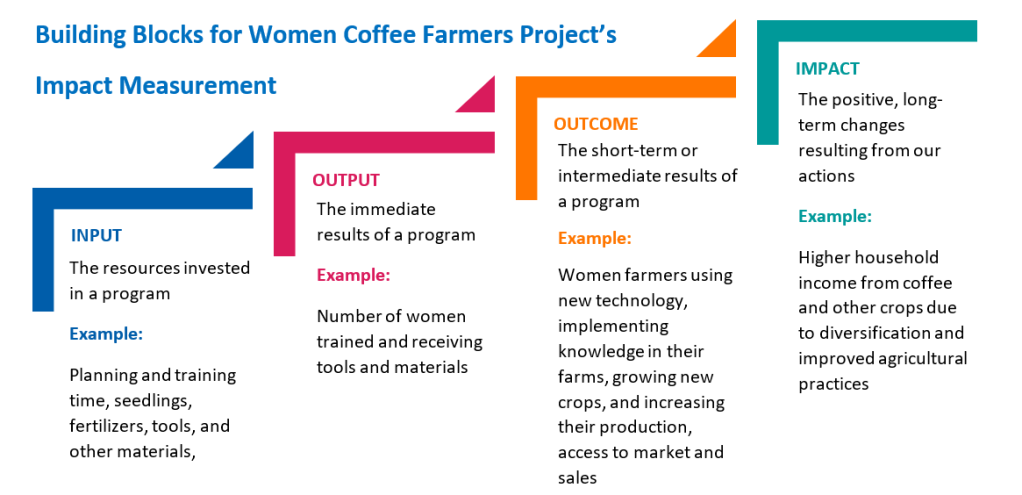By Vanessa Vegas, Regional Grants Officer
The Colombian department of Quindio is one of the four departments that constitute the “Eje cafetero,” or coffee belt, in the country. Among the large array of coffee farmers in this region, a Rotary global grant was initiated to support a group of small farms led by women. The women completed a community assessment which identified the need for newer technology, enhanced agricultural practices, and new knowledge to improve the quality of their coffee, as well as ways to engage youth, who migrate to the city looking for a better life only to find themselves unemployed.

A group of Rotarians from the Rotary Club of Armenia International in Colombia partnered with Rotarians from the Rotary Club of Miramar-Pines in Florida, United States to create a project to meet the identified needs and the best way to support these farmers was with the assistance of the coffee experts in the country. The Rotarians partnered with the “Federación Nacional de Cafeteros de Colombia” (Federation of Coffee Growers), the local entity with expertise, knowledge, and networking in everything coffee. This partner, alongside the Rotarians and the beneficiaries, identified the best training content. The 36 beneficiaries received training in new washing and drying techniques, physical and sensory qualities of coffee, post-harvesting best practices, how to use mobile application technology, and coffee institutionality.
This project planned to go beyond coffee harvesting and new techniques and recognized the limitation of relying on monoculture. Therefore, the project design also includes growing alternative crops for self-consumption and as another source of income, and training on subjects such as agriculture best practices, food security, and gender equality.

In the implementation of this grant, the farmers tested the soil to ensure the quality of each of the lots and to identify the tools required for their specific soil needs. After the women received training, they received materials, saplings, tools, and fertilizers, as well as hands-on support to implement the knowledge and enhance their production.
So far, the beneficiaries have planted new coffee trees and revitalized their existing cultivated fields by using the “soca” methodology (cutting the existing tree to ground level to stimulate the growth of another new and healthy branch). They have sown and harvested alternative crops such as corn, beans, and other vegetables and have started using an application for mobile phones that allows them to more easily monitor cultivation, production, and sales, as well as continue their learning.
This project is ongoing, and the partners involved are working on measuring the immediate outcomes, such as how many yields of alternative crops each farmer will harvest, how much will the coffee production increase, in which new markets will the women be able to sell the coffee, and how much money will they be able to earn for a higher quality kilo of coffee. The entrepreneurs track their production through the app, and the cooperating organization conducts recurrent monitoring activities.

The Building Blocks chart below demonstrates the measurable inputs (training, materials, tools, and saplings), outputs (increased skills, knowledge, and number of trees planted), and outcomes (increased production and sales) of this project, which aims to ensure long-term positive impact (increased income and wellbeing) in the lives of these women, their families, and their communities.
So far, the team has recovered areas that had been non-productive for 30-40 years, mainly due to lack of funds, tools, and knowledge and lack of interest from younger generations. Farmers have received and sowed 46,300 saplings, allowing these areas to become productive again. There is more involvement and motivation not only from the women themselves but also from their families, especially the younger members who were previously disengaged. Coffee testing and analysis have allowed farmers to understand the qualities of their product and how to improve them.
For most of the women beneficiaries, this project brings knowledge, new plants, and technology, and also a network of other local women coffee producers facing similar situations and with whom they can share their experience. They are thrilled about the opportunity this project has provided and expect to increase their incomes to improve their households’ and communities’ wellbeing.


This is a great way of helping the needy industrious women
God bless Rotarians wherever they may be 😍🥰